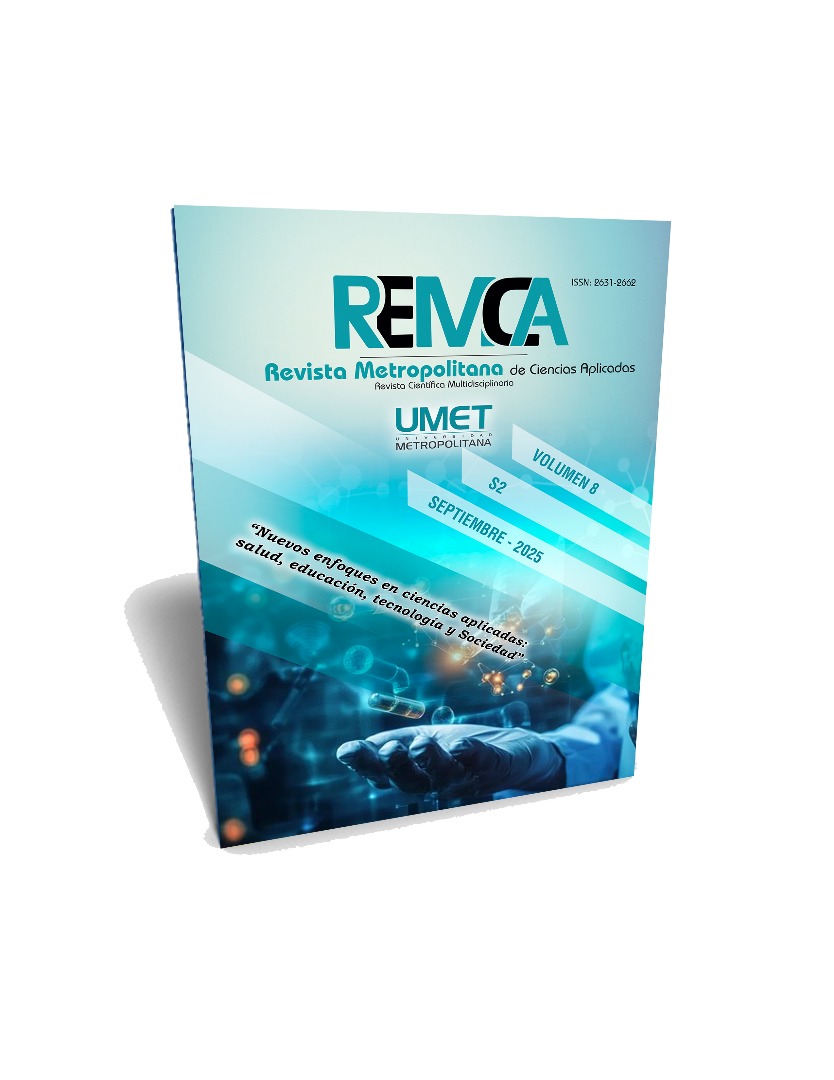Innovation in sustainable marketing strategies for SMEs in Latacunga: A path to competitive resilience in the face of climate change challenges
DOI:
https://doi.org/10.62452/gfyh1v68Keywords:
Sustainable marketing, climate change, SMEs, digital innovation, business adaptationAbstract
The influence of climate change on the business environment demands that small and medium-sized enterprises (SMEs) develop innovative marketing approaches to ensure their resilience and sustainability. In this context, this study focuses on SMEs in Latacunga, Ecuador, exploring how they address environmental challenges by integrating sustainable practices and leveraging digital technology as a driver of competitive differentiation. Through a qualitative analysis based on business testimonials and a review of relevant documentation, key adaptation strategies were identified, such as intensive use of social media, educational campaigns on responsible consumption, and the development of loyalty programs focused on sustainability. Companies are turning to digital channels such as Facebook, Instagram, and WhatsApp Business to communicate their environmental commitment and engage conscious consumers, in addition to implementing concrete actions such as adopting recycled materials and renewable energy. However, significant obstacles persist, including a lack of equitable access to sustainability training, limited financing for sustainable investments, and poor coordination between companies and public or academic stakeholders. These challenges hinder the consolidation of an environmentally responsible business culture fully aligned with global trends in social responsibility. The study concludes that, to better address the challenges of climate change, SMEs must strengthen strategic alliances, invest in environmental education and digitalization, and integrate sustainability as a core component of their value proposition, thus ensuring their competitiveness and long-term viability.
Downloads
References
Asmayanti, Syam, A., Alfa Sikar, M., Bt Mamma, B., Sudarmi, & Oktaviyah, N. (2022, enero). La aplicación WhatsApp Business como una estrategia de marketing digital de la UMKM. Advances in Economics, Business and Management Research, 655, 128–133. https://doi.org/10.2991/aebmr.k.220107.022
Comisión Económica para América Latina y el Caribe. (2021). Economía circular en América Latina y el Caribe: oportunidad para una recuperación transformadora. https://www.cepal.org/es/publicaciones/47309-economia-circular-america-latina-caribe-oportunidad-recuperacion-transformadora
Deo, K., & Prasad, A. A. (2022). Exploring climate change adaptation, mitigation and marketing connections. Sustainability, 14(7), 4255. https://doi.org/10.3390/su14074255
Ecuador. Instituto Nacional de Estadística y Censos. (2023). Visualizador de registro estadístico de empresas. https://www.ecuadorencifras.gob.ec/directoriodeempresas/
Galindo, L., & Samaniego, J. (2015). La economía del cambio climático en América Latina y el Caribe. CEPAL, Asentamieno Humanos de la CEPAL https://www.un-ilibrary.org/content/journals/16820908/2010/100/4
Herrera, D. (2020). Instrumentos de financiamiento para las micro, pequeñas y medianas empresas en América Latina y el Caribe durante el Covid-19. https://publications.iadb.org/es/publications/spanish/viewer/Instrumentos-de-financiamiento-para-las-micro-pequenas-y-medianas-empresas-en-America-Latina-y-el-Caribe-durante-el-Covid-19.pdf
Intergovernmental Panel on Climate Change. (2023). Climate Change 2023. https://www.ipcc.ch/report/ar6/syr/downloads/report/IPCC_AR6_SYR_SPM.pdf
Kotler, P., & Armstrong, G. (2020). Principios del marketing. Pearson.
Montero Reyes, Y., Gallardo Solís, J., & Corrales Lucero, R. (10 de marzo de 2021). Estudio diagnóstico evaluativo en el sector PYMES del cantón Latacunga: una mirada a la gestión empresarial y administrativa. ProSciences, 5(38), 136–148.https://doi.org/10.29018/issn.2588-1000vol5iss38.2021pp136-148
Olarewaju, T., Dani, S., & Jabbar, A. (2023). A comprehensive model for developing SME net zero capability incorporating grey literature. Sustainability, 15(5), 4459. https://doi.org/10.3390/su15054459
Osuagwu, L. (2023). Green Marketing: Conceptualizations, Managerial Practices, Challenges and Research Agenda. https://www.researchgate.net/publication/372882425_Green_Marketing_Conceptualizations_Managerial_Practices_Challenges_and_Research_Agenda
Pintado Acaro, M. F., Toaquiza Chimba, P. I., Jácome Segovia, D. F., & Alajo Anchatuna, A. L. (2025). Redes sociales en la difusión de productos en las pymes del cantón de Latacunga, Pujilí y Salcedo. AlfaPublicaciones, 7(1), 166–180. https://doi.org/10.33262/ap.v7i1.588
UN Environment Programme. (2022). Climate Change 2022: Impacts, Adaptation and Vulnerability, the Working Group II contribution to the Sixth Assessment Report. https://www.unep.org/resources/report/climate-change-2022-impacts-adaptation-and-vulnerability-working-group-ii
Wildnerova, L., Menon, C., Dehghan, R., Kinne, J., & Lenz, D. (2024). Which SMEs are greening? Cross-country. OECD Publishing. https://www.oecd.org/content/dam/oecd/en/publications/reports/2024/07/which-smes-are-greening_ffa14385/ddd00999-en.pdf
Downloads
Published
Issue
Section
License
Copyright (c) 2025 Tania Alexandra Cuchive-Chiguano, Milton Marcelo Merino-Zurita (Autor/a)

This work is licensed under a Creative Commons Attribution-NonCommercial-ShareAlike 4.0 International License.
Authors who publish in Revista Metropolitana de Ciencias Aplicadas (REMCA), agree to the following terms:
1. Copyright
Authors retain unrestricted copyright to their work. Authors grant the journal the right of first publication. To this end, they assign the journal non-exclusive exploitation rights (reproduction, distribution, public communication, and transformation). Authors may enter into additional agreements for the non-exclusive distribution of the version of the work published in the journal, provided that acknowledgment of its initial publication in this journal is given.
© The authors.
2. License
The articles are published in the journal under the Creative Commons Attribution-NonCommercial-ShareAlike 4.0 International License (CC BY-NC-SA 4.0). The terms can be found at: https://creativecommons.org/licenses/by-nc-sa/4.0/deed.en
This license allows:
- Sharing: Copying and redistributing the material in any medium or format.
- Adapting: Remixing, transforming, and building upon the material.
Under the following terms:
- Attribution: You must give appropriate credit, provide a link to the license, and indicate if any changes were made. You may do this in any reasonable manner, but not in any way that suggests the licensor endorses or sponsors your use.
- NonCommercial: You may not use the material for commercial purposes.
- ShareAlike: If you remix, transform, or build upon the material, you must distribute your creation under the same license as the original work.
There are no additional restrictions. You may not apply legal terms or technological measures that legally restrict others from doing anything the license permits.




